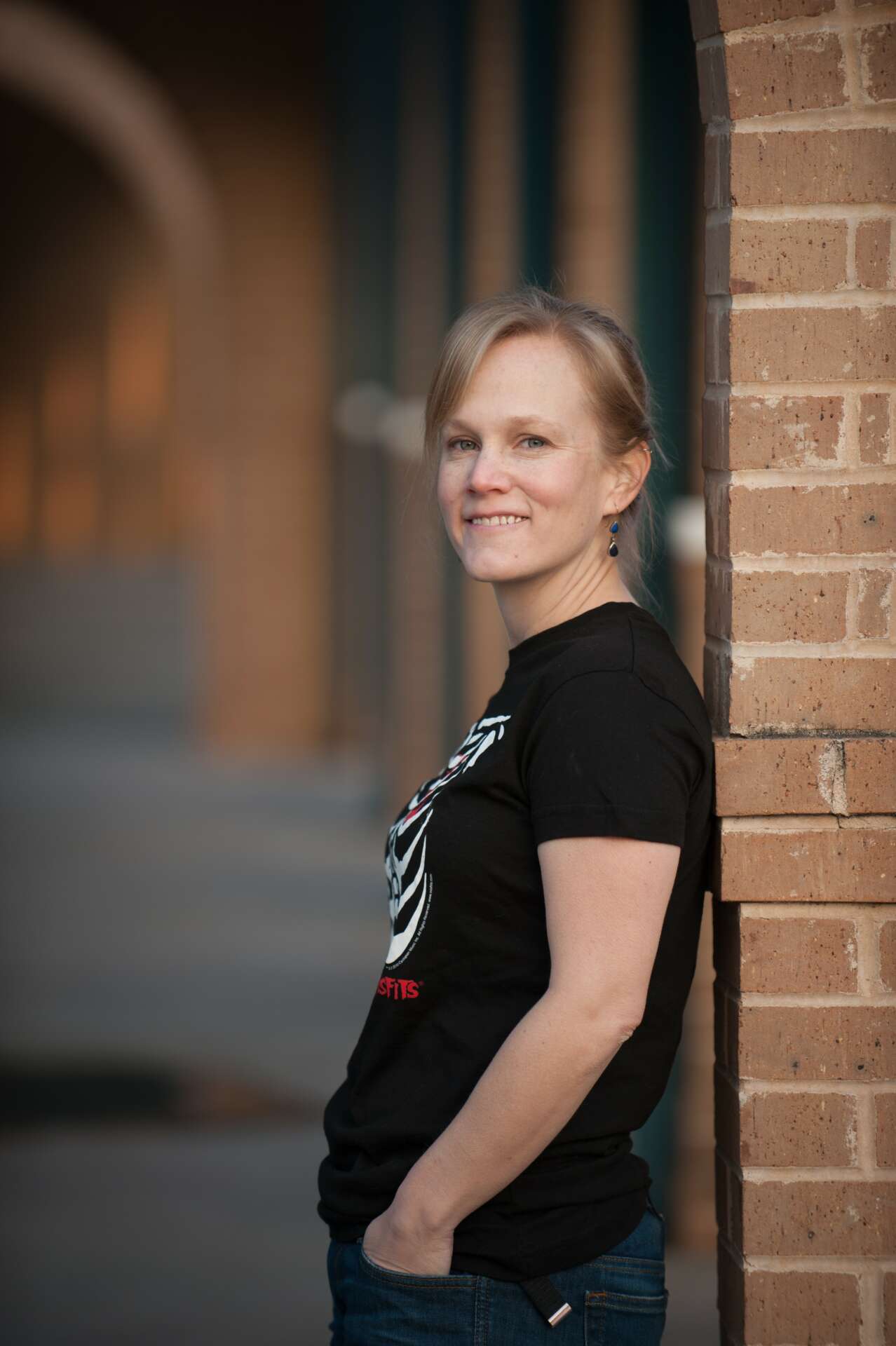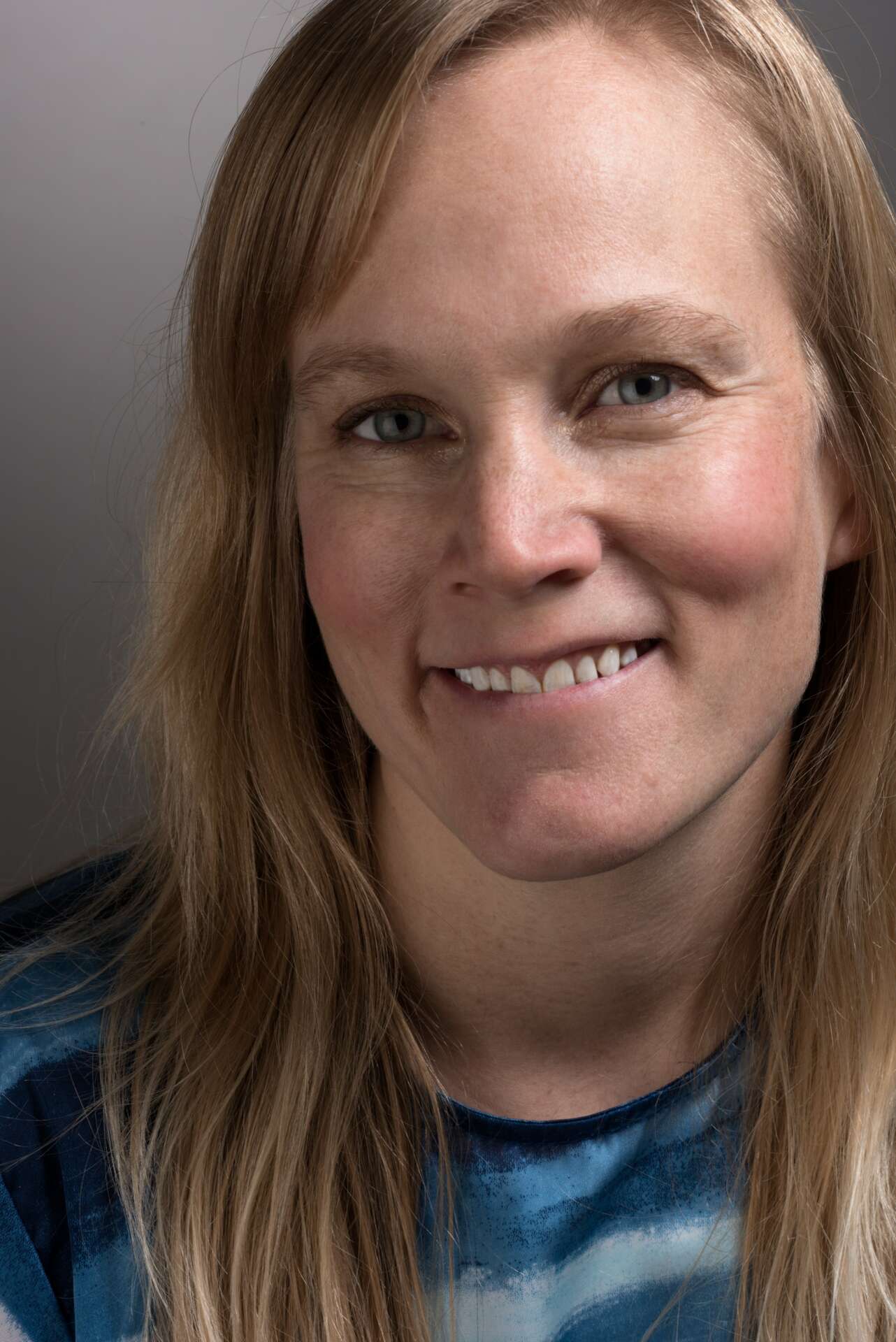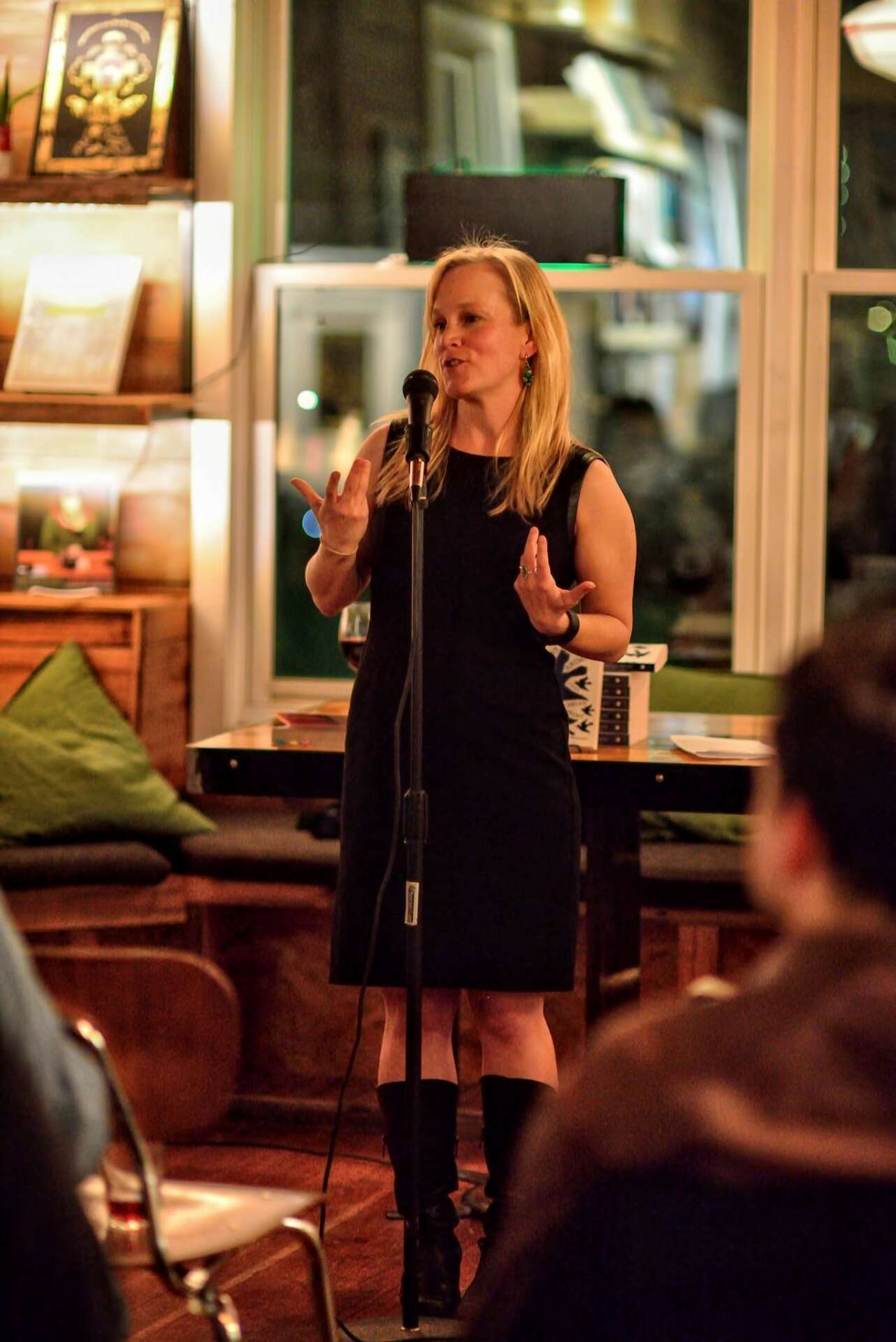Alright – so today we’ve got the honor of introducing you to Mary Helen Specht. We think you’ll enjoy our conversation, we’ve shared it below.
Mary Helen, thanks for joining us, excited to have you contributing your stories and insights. We’d love to hear about the things you feel your parents did right and how those things have impacted your career and life.
My parents are both librarians, so I was raised among books. I used to walk to my father’s library after school and read until he got off work. (Sometimes I would also stand in front of the enormous open dictionary on the mezzanine and look up dirty words.) I think one of the best things my parents did was not over-schedule me or try to control my free time—I was a classic Gen X free-range kid who spent lots of time day-dreaming and on my own.
While I loved to read growing up—in fact, I sat in the living room with my parents pretending to read Tropic of Cancer long before I actually could—books made me want to live within them rather than to write them, at least at first. I wanted to be Meg Murry in A Wrinkle in Time, playing with Bunsen burners after school and saving my father from the tesseract. Carl Sagan’s Contact inspired me to subscribe to Astronomy magazine (until I learned you had to be plausible at math to become an actual astronomer); after reading A Separate Peace, I dressed like a boy and begged to enroll in a bucolic boarding school out east. Growing up in a small town in West Texas, books were my wormholes to the wider world.
I’m not sure I can pinpoint one moment where I decided to write stories rather than just imagine myself inside them. It was a gradual process. We probably only get to live one life (boo!); writing fiction allows me, for a time, to embody what it’s like to be someone else born into a different context, with different desires and challenges. My parents gave me the space and support to expand myself.

Awesome – so before we get into the rest of our questions, can you briefly introduce yourself to our readers.
I’m Mary Helen Specht. I’m currently working on a novel about rock-n-roll and underground bunkers and people who wear alligator shoes. You’ll often find me floating on my back at Barton Springs. I also like riding buses, even when I have no nowhere in particular to go. I once worked at restaurant with an old-timey filling station theme; we served “Diesel Dogs” and flaming drinks while wearing pin-striped gas station uniform.
My first novel, Migratory Animals, was published by Harper in 2015. An editors’ choice by the New York Times Book Review and the Austin American-Statesmen, an IndieNext Pick, and an Apple iBook selection, Migratory Animals also won the Texas Institute of Letters Best First Fiction Award and the Writers’ League of Texas work of Best Fiction. My stories and essays and other ephemera have appeared in numerous publications, including: The New York Times; The Colorado Review; Prairie Schooner; Michigan Quarterly Review; The Southwest Review; Florida Review; Southwestern American Literature; World Literature Today; Blue Mesa; Hunger Mountain; Bookslut; The Texas Observer; and Night Train, where I won the Richard Yates Short Story Award. Texas Monthly named me one of “Ten Writers to Watch.
I was born and raised in Abilene, Texas (“women there don’t treat you mean,” at least according to the song), and though I left Texas for many years to live on the East Coast and abroad on multiple continents, the state eventually pulled me back in. I currently teach creative writing at St. Edward’s University in Austin.

Learning and unlearning are both critical parts of growth – can you share a story of a time when you had to unlearn a lesson?
I think a lot of us grow up with the idea that creative pursuits are all about inspiration. About being struck by lightning or channeling something mystical from the other side. And while inspiration is real and feels great when it happens, I’ve come to believe that 90% of a creative life is actually about hard work and putting yourself out there. I remember thinking that good writers were able empathize with characters unlike themselves by pure force of will. And while the desire to empathize with the experiences of others may be a prerequisite for being a good writer, I now believe that real empathy comes from being able to understand someone’s situation and that understanding often comes from lots of research and experience.
In graduate school, one professor encouraged us to take advantage of our characters’ jobs, those concrete details and functions that make up their lives. This transformed my writing practice. Over time I’ve realized that I’m the opposite of a method actor; I work from the outside in. Only after understanding what they do with their hands, with their days, can I begin to access my characters’ inner lives. So, my early drafts begin with the outside world and then slowly move inward.
Let’s talk about resilience next – do you have a story you can share with us?
My first tattoo—inked on my eighteenth birthday during a road trip to Austin—was of a stylized turtle, which, randomly chosen at the time, turned out to be appropriate. I am certainly the tortoise, not the hare. I revise a lot; I make a lot of mistakes; and I don’t give up.
Contact Info:
- Website: www.maryhelenspecht.com
- Instagram: maryhelenspecht
- Twitter: @mhspecht
Image Credits
DSC_3600: Matt Valentine


